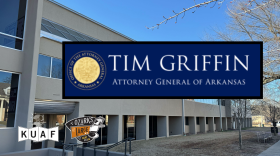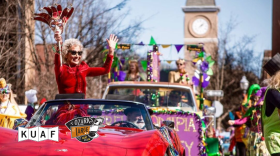
It surprised more than a few people in the Public Relations industry when Harold Burson, a founder of the legendary PR firm Burson-Marsteller (now Burson, Cohn & Wolfe), relocated from New York to Memphis last year and set up an office for himself in the multinational company's East Memphis location.
"A lot of people think I'm daffy for doing this," he says during a break between emails, organizing photos, scheduling lunches and reminiscing about 7 decades in the business.
Burson was born here, albeit in a much different city. At 98, he predates nearly all of our major historic landmarks: the Peabody Hotel, the Orpheum Theatre, Rhodes College and everything east of Highland Avenue. ("If you went east of Highland, you were up to no good," he says.)
A voracious reader, Burson was also something of a child prodigy, graduating from Humes High School (20 years before Elvis Presley) at age 15. While studying journalism at Ole Miss, he paid his tuition as a stringer for the Commercial Appeal. He worked in the Army Press Corps during World War II and even covered the famed Nuremburg trials for Armed Forces Radio.
After the war, he took what he'd learned about writing, fact-checking, messaging and truth-seeking to the private sector, heading up public relations for major companies.
"Throughout my career, I've always felt that you always tell the truth," he says. "If you don't want to tell the truth, don't answer the question."
Conscience might not be a word readily associated with P.R., but Burson says a good agency should at least advocate for having one.
"It's my job to get my clients to behave in a way that will earn the respect of the public," he says.
Helping companies survive P.R. disasters is Burson's specialty. His agency worked with Johnson & Johnson during the famed Tylenol poisoning scare of 1982, which led to today's rigorous safety measures for pharmaceutical packaging.
But in the history of big corporate goof-ups, few compare to the crisis brought on by the "Cola Wars" of the late 1970s and early '80s. The so-called Pepsi Challenge was a national ad campaign that showed Americans preferring Pepsi over Coke in blind taste tests. It was highly persuasive. Coke, the dominant American soda, was losing market share at such an alarming rate, the company decided to toss out its 100-year-old secret formula and start over with a slightly sweeter version dubbed New Coke.
The backlash from original Coke drinkers was fierce and withering. Behind the scenes, Burson advised Coke's internal P.R. department that there was just one way out.
"My recommendation was we gotta be very humble. We gotta say we were dumb. In other words, what we gotta do is eat s---," he says.
And that's just what the company did. In a famous press conference, Coke president Donald Keough read aloud disparaging letters from Coke drinkers and owned up to the mistake. The old flavor returned, renamed Coca-Cola Classic. The brand soon regained its title as the No. 1 cola in America.
Big business today has a similar branding problem. According to a recent survey, more than half of Americans still perceive corporations as prioritizing shareholders over customers and employees.
When asked how he might apply 70 years of P.R. experience to fixing corporate America's image problem, Burson offers a surprising answer.
"I think the first thing I would do is redistribute wealth," he says, citing the vast disparity between C.E.O. pay and employee pay. Coming from a friend of Ronald Reagan, the follow-up quip sounds decidedly radical. "I think that a corporation is a social institution."
The notion is not just the stuff of certain Democratic presidential candidates. In August, a panel of corporate leaders in the Business Roundtable "redefined" its "Principles of Corporate Governance," promoting future business practices that are less beholden to stockholders and more accountable to communities and employees.
To put that it in a tidy P.R. summary: stakeholders over stockholders.
For Harold Burson, that's not just ethical corporate policy. It's good public relations.
Event: Harold Burson will appear 5:30 p.m. Wednesday, Oct. 23 at the Halloran Center in "Evening with an Icon: Harold Burson, Public Relation Pioneer." Tickets are $30-$70. Click here for more information.
Copyright 2019 WKNO






